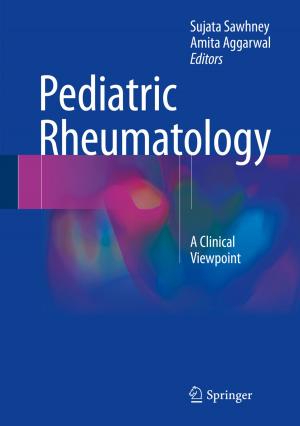Evolution of Atopic Dermatitis in the 21st Century
Nonfiction, Health & Well Being, Medical, Specialties, Dermatology, Medical Science, Immunology| Author: | ISBN: | 9789811055416 | |
| Publisher: | Springer Singapore | Publication: | December 6, 2017 |
| Imprint: | Springer | Language: | English |
| Author: | |
| ISBN: | 9789811055416 |
| Publisher: | Springer Singapore |
| Publication: | December 6, 2017 |
| Imprint: | Springer |
| Language: | English |
This comprehensive guide offers a state-of-the-art overview of basic and clinical aspects of atopic dermatitis (AD).
The name "atopic dermatitis" was first used in 1933, and Drs. Lewis Webb Hill and Marion B. Sulzberger presented their report "Evolution of atopic dermatitis" in 1935. Their observations accurately forecasted the contemporary issues in the management of the condition, such as the conclusions that should be drawn from our understanding of the pathogenesis of AD, and the use of steroids as the main treatment. Several aggravating factors have recently been identified, and these also need to be addressed.
In this context, the expert contributors to this book describe and discuss the evolution of atopic dermatology from Sulzberger’s era to the present day, including clinical manifestations, etiopathology and treatment. In addition, it explores skin care intervention, the role of microbiom and GWAS studies, and presents unique, previously unpublished cohort studies.
It provides insights into the dynamic changes in AD since Sulzberger introduced topical steroids for its treatment. It is a valuable resource for dermatologists, medical practitioners and researchers who are interested in atopic dermatology.
This comprehensive guide offers a state-of-the-art overview of basic and clinical aspects of atopic dermatitis (AD).
The name "atopic dermatitis" was first used in 1933, and Drs. Lewis Webb Hill and Marion B. Sulzberger presented their report "Evolution of atopic dermatitis" in 1935. Their observations accurately forecasted the contemporary issues in the management of the condition, such as the conclusions that should be drawn from our understanding of the pathogenesis of AD, and the use of steroids as the main treatment. Several aggravating factors have recently been identified, and these also need to be addressed.
In this context, the expert contributors to this book describe and discuss the evolution of atopic dermatology from Sulzberger’s era to the present day, including clinical manifestations, etiopathology and treatment. In addition, it explores skin care intervention, the role of microbiom and GWAS studies, and presents unique, previously unpublished cohort studies.
It provides insights into the dynamic changes in AD since Sulzberger introduced topical steroids for its treatment. It is a valuable resource for dermatologists, medical practitioners and researchers who are interested in atopic dermatology.















